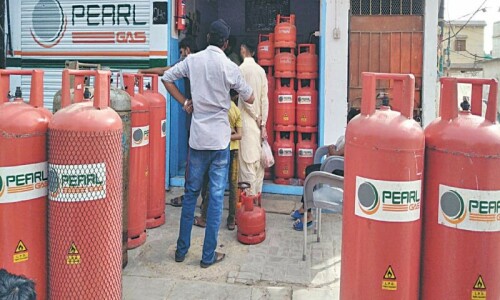BIG business always grabs the spotlight for one reason or the other owing to the money it can afford to spend on promoting its interests. But public and government attention seldom shifts to the backbone of the economy: small and medium enterprises (SMEs).
According to estimates gleaned from various sources, more than 80 per cent economic establishments in Pakistan are SMEs, which collectively contribute around 40pc to GDP and about equal percentage to exports.
The SME Policy of 2007 defines a small and medium enterprise as an entity that maintains a paid-up capital of up to Rs25 million, grosses sales of up to Rs250m and employs 250 workers at most.
SMEs employ nearly half of the country’s labour force. According to the last available Census of Economic Establishments (2005), there were 3.2m such enterprises in the country. The figure is surely redundant, as the number may have multiplied manifold in the last 12 years.
Lack of access to finance is a common problem faced by small and medium sized businesses, which comprise an estimated 80pc establishments in Pakistan
One resource that provides a deeper insight into growth, problems and prospects of these companies is the Small and Medium Enterprises Development Authority (Smeda), which was set up in 1998 and operates under the Ministry of Industries and Production.
The organisation, which functions as a bridge between private and public sectors, focuses on 13 key sectors — logistics, ICT and allied services, gems and jewellery, horticulture, construction, fisheries, energy, dairy and livestock, light engineering, mineral, leather, tourism and textile.
Smeda CEO Sher Ayub Khan could not be reached, but a senior official of the authority says that it offers services to SMEs in 21 cities across Pakistan. The assistance ranges from raising finance to advice on company incorporation, export registration and regulatory advice on taxation under various heads.
Zulfikar Thaver, president of the Union of Small and Medium Enterprises (Unisame), a forum for creating awareness of the rights of SMEs, reckons that the size and scope of Smeda should be increased.
“Sufficient funds must be provided to Smeda to register all SMEs according to place and industry, and to reach enterprises involved in manufacturing, trading and services,” he says.
Unisame also believes that in order to free farmers from the clutches of the middleman, microfinance banks should increase the limit of loans.
Business and industry proprietors and sponsors, Smeda, Unisame and others agree that lack of access to finance is a common problem faced by small and medium sized businesses, which generally have a higher debt ratio.
The collateral required by banks and other financiers to give loans varies and depends on the risk assessment of the customer.
“Therefore, banks are extremely cautious in extending credit to small and medium enterprises,” the Smeda official says. However, he adds that financiers have started to develop special products for small and midsized enterprises after the State Bank of Pakistan recently focused on creating awareness on the potential of the SME sector.
Mr Thaver says that Unisame also facilitates the SME sector by arranging finance according to their needs at affordable markup from commercial and financial institutions. Such businesses could include shops, workshops and small factories.
At the same time, many people doubt the efficiency and competitiveness of the existing SME Bank in coming to the rescue of the small business borrowers.
But not all financiers are afraid to extend loans to small and medium sized businesses. “I have great faith in SMEs,” a recently retired managing director of a leading leasing company tells this writer. He asserts that during his tenure he had no qualms about extending lease financing to small businesses, even those operating in the country’s remote areas, after conducting due diligence.
He says his company applied the criteria of ‘know your customer’, checked companies’ registration, confirmed payment of sales tax and withholding tax and assessed total worth and inventory before figuring out the amount it would lend to an enterprise.
Hardship defaults were rare and voluntary defaults almost non-existent, he says. “SMEs knew that if their default was reported to the Credit Information Bureau, their access to flow of money from all sources would dry down.”
However, he concedes that the rate of markup much higher for small businesses than for big ones. “If a big business house in the organised sector would be offered lease financing at Kibor plus 2 for instance, SMEs were charged Kibor plus 5 or 6, fairly in accordance with the associated risks,” he argues.
Several entrepreneurs of small businesses — from a general store, roadside hotels to cottage industries — express displeasure at the current tax regime, which they say “punishes the non-filers of tax returns”. They argue that taxes were collected at source as well as indirect taxes on every item of daily consumption.
“Sole proprietors, unregulated partnership businesses and small companies that conduct legal business, contribute to the country’s economic growth and give jobs to millions,” says a manager of a small embroidery workshop, which employs around 25 craftsmen. “We must not be treated like smugglers and black marketeers.”
Published in Dawn, The Business and Finance Weekly, March 19th, 2018















































